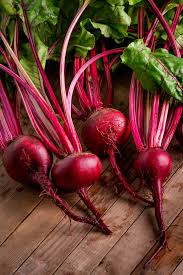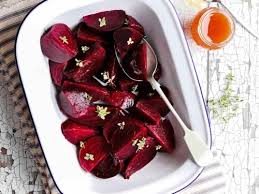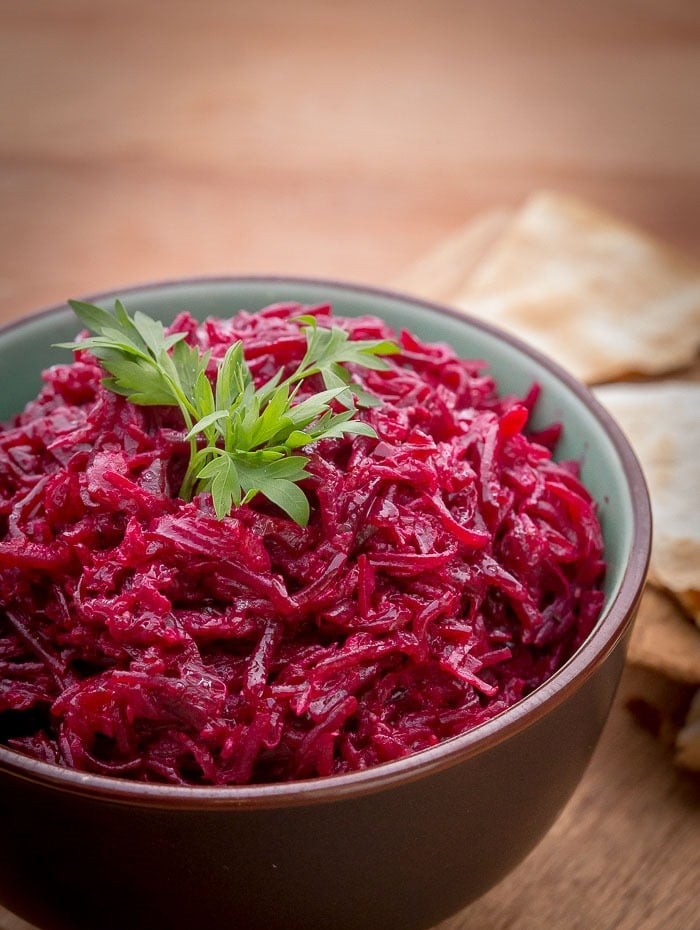History and Origins:
Origins: Beetroot traces its roots to the Mediterranean region, where it was grown by ancient civilizations such as the Romans and Greeks. Over time, its cultivation spread throughout Europe and beyond to different parts of the globe.
Historical Use: Originally, beetroot was valued for its leaves and stems. It was only in the 16th century that the root began to be appreciated for its nutritional benefits.
Physical Characteristics:
### **Physical Characteristics**
- Appearance: Beetroot generally appears round or oval, showcasing a rich red or purple hue, though golden and striped varieties exist. The vibrant coloration is due to betalains, a group of pigments.
- Flavor: The taste is earthy and sweet, with a hint of nuttiness.

Nutritional Components:
Macronutrients:
Carbohydrates: Beetroots are rich in carbohydrates, mainly sugars such as glucose and fructose, offering a quick energy boost.
Protein: Contains minor amounts of protein, usually under 2 grams per 100 grams
Fat: Exceptionally low in fat content.
Micronutrients:
Vitamins:
– Vitamin C: Crucial for immune support, skin vitality, and antioxidant defense.
Vitamin B6: Crucial for metabolism and cognitive function.
Folate (Vitamin B9): Essential for DNA synthesis and repair, especially important during pregnancy.
Minerals:
Potassium: Regulates fluid balance, aids in muscle contractions, and enhances nerve communication.
Manganese: Promotes bone health, aids metabolism, and bolsters antioxidant defenses.
Iron: Essential for carrying oxygen in the bloodstream.
Magnesium: Supports muscle and nerve function, and promotes bone health.
Antioxidants:
Betalains: These pigments offer anti-inflammatory and antioxidant benefits.
Beta-carotene: Converts to Vitamin A, enhancing vision, immune function, and skin health.

Other Components:
Fiber: Rich in dietary fiber, beetroot supports digestion and fosters a healthy gut.
Nitrates: Naturally occurring compounds that transform into nitric oxide within the body, boosting exercise performance and enhancing blood flow.
Health Benefits:
Cardiovascular Health**: The nitrates found in beetroots reduce blood pressure and enhance cardiovascular health.
Liver Health: Betalains enhance liver function by promoting detoxification processes.
Digestive Health: Rich in fiber, it supports efficient digestion and helps prevent constipation.
Athletic Performance: Nitrates enhance blood flow and oxygen delivery, which may boost endurance and exercise efficiency.
Anti-Inflammatory: Antioxidants alleviate inflammation and can assist in managing chronic conditions such as arthritis.
Culinary Uses:
Raw: Ideal for grating into salads or enjoying as a crunchy snack.
Boiled: Can be boiled, peeled, and incorporated into salads or served as a side dish.
Roasted: Roasting brings out the natural sweetness and deepens the flavor. Simply cut into wedges, season, and roast in the oven.
Juiced: Fresh beetroot juice, celebrated for its health benefits, is frequently blended with a variety of fruits and vegetables.
Pickled: Preserved in vinegar and spices, offering a tangy complement to dishes.

Preparation and Storage:
Preparation: Rinse thoroughly before cooking. Ideal for boiling, steaming, or roasting. For juicing, peel and slice into pieces.
Storage: Keep raw beetroots in a cool, dry area. Refrigerate cooked beetroot and consume within one week.
Research and Development:
Modern Studies: Recent research continues to investigate beetroot’s potential to lower blood pressure, boost exercise performance, and contribute to disease prevention.
Future Directions: Current research is exploring beetroot’s potential advantages for brain health, cancer prevention, and managing chronic illnesses.
Beetroot, a versatile and historically significant vegetable, offers numerous health benefits, making it an excellent addition to a balanced diet.
